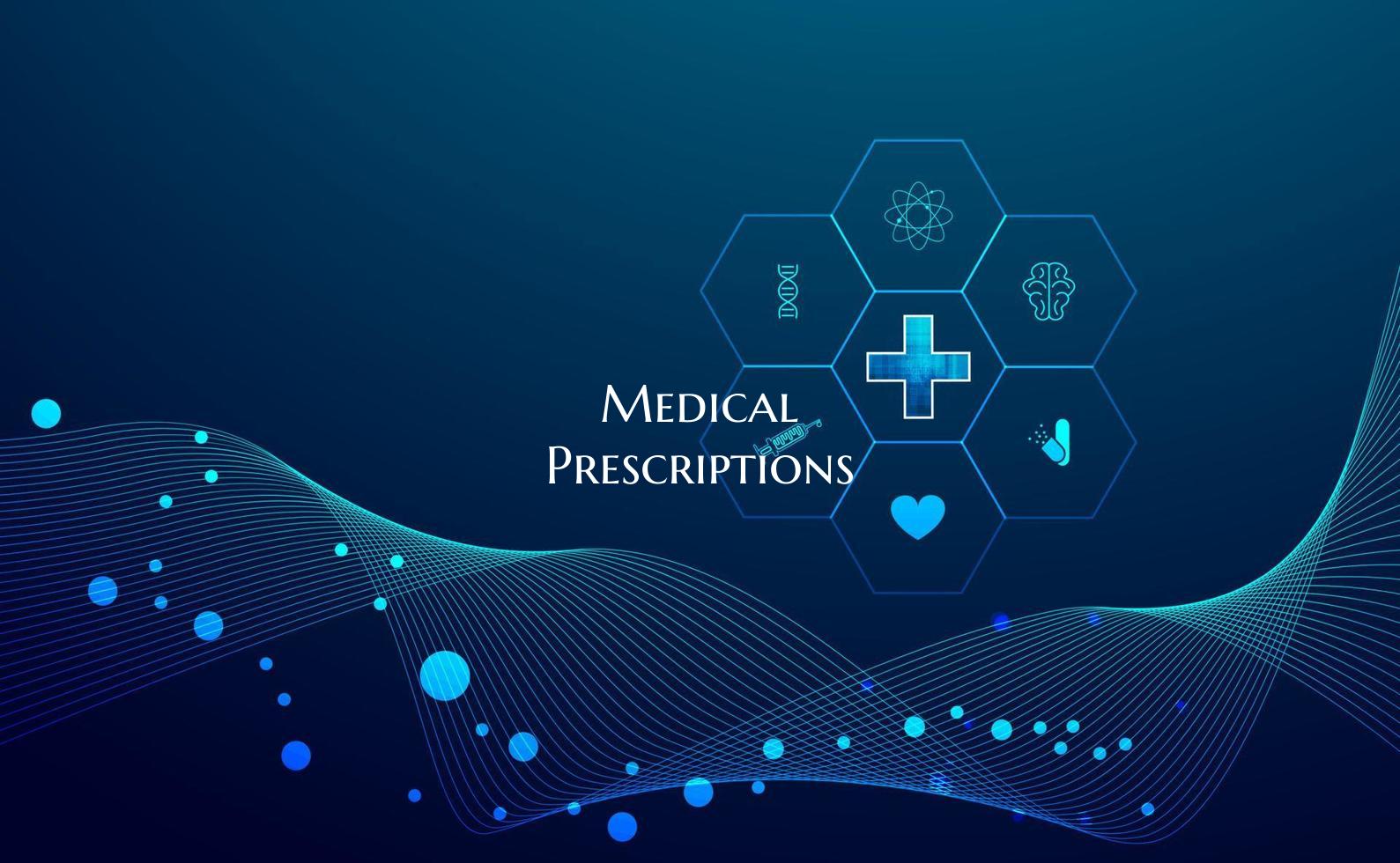
Medical Prescriptions
Medical Prescriptions: Essential Guidelines and Best Practices
Medical prescriptions play a crucial role in the healthcare system, ensuring that patients receive appropriate treatment for their conditions. It is vital for both healthcare providers and patients to adhere to guidelines and best practices when it comes to prescribing and using medications. Here are some essential points to keep in mind:
1. Legal and Ethical Aspects: - Healthcare professionals must follow legal and ethical standards when prescribing medications. This includes having the necessary qualifications and authorization to prescribe certain medications. - Prescriptions should be based on a thorough assessment of the patient's medical history, current condition, and any potential drug interactions.
2. Accuracy and Legibility: - Prescriptions should be written clearly and legibly to avoid any errors in dispensing the medication. - It is important to include vital information such as the patient's name, the medication name, dosage instructions, and any special directions.
3. Dosage and Administration: - Healthcare providers must prescribe the correct dosage of medication based on the patient's age, weight, and medical condition. - Patients should carefully follow the dosage instructions provided and seek clarification from their healthcare provider if they have any doubts.
4. Drug Interactions and Allergies: - Healthcare providers need to be aware of possible drug interactions when prescribing multiple medications to a patient. - Patients should inform their healthcare providers about any known allergies or sensitivities to medications to prevent adverse reactions.
5. Refills and Follow-Up: - Prescriptions should indicate the number of refills allowed, if any, and specify the duration of treatment. - Patients should schedule follow-up appointments with their healthcare providers to monitor the effectiveness of the prescribed medication and address any concerns.
6. Storage and Disposal: - Patients should store medications in a cool, dry place away from direct sunlight and moisture. - Unused or expired medications should be properly disposed of to prevent accidental ingestion or environmental contamination.
By following these guidelines and best practices, healthcare providers and patients can ensure the safe and effective use of medical prescriptions. It is essential to communicate openly with healthcare professionals and pharmacists to address any questions or concerns regarding prescribed medications. Ultimately, the goal of medical prescriptions is to improve patient outcomes and enhance overall well-being.